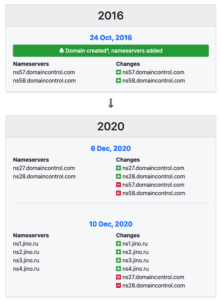When the Plagiarist Sends the DMCA Notice

In a recent post on the Writer Beware Blog, a blog sponsored by the Science Fiction and Fantasy Writers of America, Victoria Strauss told a bizarre tale about how a plagiarist not only copied her content, but backdated it to before the original post and filed a DMCA notice with Google to get the original post removed.
The story starts a few weeks ago when she logged into her rarely-used Gmail account and noticed she had an article that was removed from the blog over a copyright claim.
The original post, which was published on September 28, 2018, detailed the implosion of Fiery Seas Publishing. She had written the article herself and couldn’t figure out what was infringing about it.
However, when she checked out the “Original URL”, it took her to a post on a blog named Comusa and operated by a person known as Bella Andreas. However, the post was dated to September 3, 2018, 25 days before the real original post went live.
Strauss then realized that the plagiarist clearly backdated the post and then filed a DMCA notice to make it look as if she was the infringer. She then went through other posts on the blog (which has been inactive for nearly a year now) and found that every post on the site followed that pattern, copied wholesale from another site and backdated.
Strauss further noticed that many of the post dates on her site actually predate the registration of her domain, with some going as far back as 2014 and the domain being registered in 2016.
It’s also worth noting that, according to the Lumen Database, Andreas is an active DMCA filer, having submitted 10 DMCA notices since December last year over content on her site. All the notices in the database were sent to Google, however, other hosting providers may or may not participate in submitting notices there.
In short, Strauss is not the only one to have this experience.
But all of this begs a simple question: Why? What could anyone gain from copying and backdating posts, especially older posts, and sending DMCA notices over it? To that, we can only speculate.
A Bizarre Tale

If we set the copyright notices aside for a second, the idea seems fairly straightforward. The site is copying posts and hoping that, by backdating them, they will fool the search engines into thinking that THEY are the original site.
This is not an uncommon technique among spammers but it rarely works. Google organically tracks when pages make it online and isn’t likely to be fooled by a backdated post. That said, it almost certainly improves the odds at least some.
As for the site itself, though the domain was registered in October 2016, it most likely didn’t become an active site until December 2020 as that was when it moved to its current host, which is in Russia. Unfortunately, the Internet Archive has no older copies of the site to verify or debunk this.
All in all, it’s a standard spam blog, complete with misspellings in the tag line and name. It doesn’t have ads or outbound links, but if the site was only launched in December 2020. The operator is likely waiting until it is performing better to add them.
What makes this case unique is the DMCA notices. Why would a spammer want to send DMCA notices against the original authors and draw more attention to themselves? Though it’s impossible to know for certain, there are a few reasons one might.
Speculation Station
Here, we have to enter Speculation Station as reading into the intent of a spammer is an incredibly difficult thing to do.
Strauss may have simply had bad luck. The Writer Beware blog is hosted on Google’s Blogspot service. Most of the other sites that were targeted are not but the owner site notices to Google anyway. The aim wasn’t to get these posts taken down, but to get them removed from Google.
That, in turn, makes things much more clear. The site is sending out notices for content it copied so that, once those are removed from Google, their site will hopefully be seen as the “original” host for the content.
In short, they are likely trying to remove the original articles from Google so their plagiarized and infringing ones will become the new default for the relevant terms.
Once again, this is pure speculation but given the pattern of the notices and the setup of the site itself, this is the most probable explanation. As someone with 20 years of experience dealing with such sites, this fits well with what I’ve seen elsewhere.
That said, it is still VERY unusual and rare for such sites to file takedown notices against the sites they copied from. Spammers are usually hoping to fool the Google bots but avoid detection from the humans.
This is doing quite the opposite.
Bottom Line
Over the years we’ve talked a great deal about the struggles of battling bad DMCA notices. To be clear, most bad DMCA notices are simple mistakes and are usually easily corrected. But when someone abuses the law maliciously, there needs to be consequences.
However, as we saw in the Lenz v. Universal case, pursuing and winning a lawsuit over a dubious DMCA notice is difficult, expensive and generally not worthwhile. Even when people publicly admit that they filed the notice maliciously, it can be tough to see any justice.
The DMCA is in desperate need of reform and one of the things that is needed is an effective system to target those that maliciously abuse it. The upcoming Copyright Small Claims Court may provide some help with that, but it remains to be seen how useful and practical it will be in these cases.
The good news is that, for right now. stories like this one are rare. However, if these spammers find success in this approach, it may just be the first drops before the dam bursts.
Luckily, at least judging by Google’s indexing of the site (or rather, lack thereof), it did not work in this case and may have even backfired. If so, let’s hope it’s a lesson others take to heart.
Want to Reuse or Republish this Content?
If you want to feature this article in your site, classroom or elsewhere, just let us know! We usually grant permission within 24 hours.
